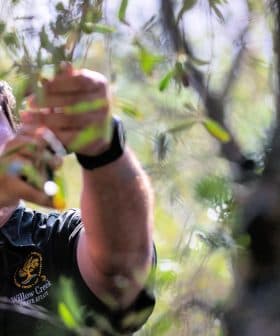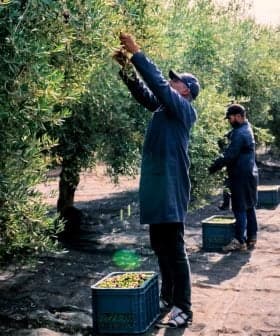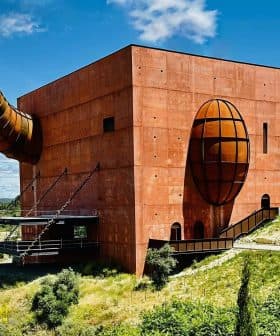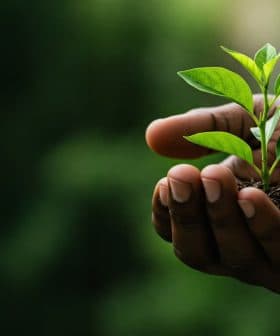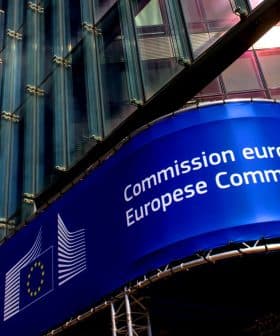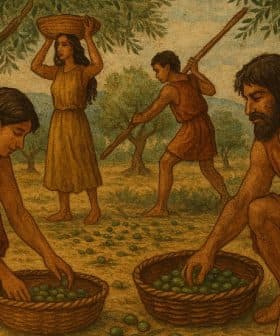Organic Farms Produce Less, but Are More Cost Effective, Study Finds
Researchers in Germany highlighted the difference between conventional and organic farming in terms of real costs and yields.
 10.7K reads
10.7K readsA study in Germany found that conventional agriculture is nearly double the output of organic agriculture, but converting to organic farming could benefit the environment and reduce costs significantly, with potential savings exceeding €4 billion if 30 percent of farmland is converted by 2030. Organic farming practices, such as crop rotation and avoiding chemical pesticides, have been shown to be more environmentally friendly and can help preserve soil health for future generations, with the European Union aiming to convert 25 percent of agricultural land to organic practices by 2030.
A decade-long study in Germany found that conventional agricultural production is nearly double that of organic agriculture.
However, the research also showed that converting to organic farming might significantly benefit the environment while reducing costs.
We need to stop simplifying the complexity of a varied ecosystem, leave behind intensive land use and adopt agro-ecological organic farming practices.
The study by Munich Technical University demonstrated that conventional agriculture costs up to €800 per hectare more than organic farming.
For the study, the researchers accounted for the usual farming expenses, including the costs related to the environmental impact of the two different farming approaches, such as those derived from the effects of greenhouse gas emissions.
See Also:Italy’s Organic Food Sales More than Doubled in the Past DecadeThey determined that transitioning to organic farming could significantly reduce emissions and costs. For example, if 30 percent of farmland is successfully converted to organic practices by 2030, as stipulated by the current policy in Germany, savings will exceed €4 billion, the researchers said.
The study followed the performance of 40 conventional and 40 organic farms, which scientists found more environmentally friendly.
The researchers attributed this to the lack of chemical pesticides and nitrogen fertilizers used in organic farming. Additionally, the humus of the soil in organic farms fixes a higher quantity of carbon due to practices such as crop rotation and planting leguminous cover crops.
The researchers highlighted how crop rotation could deliver significant benefits through carbon dioxide sequestration, with farmlands functionally transformed into carbon sinks.
Some of these practices are included in the European Union’s new Common Agricultural Policy, which provides additional funds to farmers following advanced soil-preserving techniques.
Common Agricultural Policy
The Common Agricultural Policy (CAP) is a European Union policy that was established in 1962 to support and protect agricultural production in member states. The CAP is primarily focused on ensuring a stable supply of food at affordable prices for E.U. citizens, while also promoting sustainable agriculture, protecting the environment, and supporting rural communities. The policy provides financial subsidies to farmers, regulates production levels and sets standards for animal welfare and environmental protection.
The research also found other critical differences between conventional and organic farms, including fewer animals in organic farms, the reduced use of fossil fuels and lower land use intensity.
Still, the study demonstrated that conventional farming yields could almost double organic output. However, the researchers said this might change over time with further investigation.
“There are many studies confirming that if we consider the yield per hectare, per year, organic farming tends to be from 8 to 25 percent less productive than conventional ones,” Maria Grazia Mammuccini, an organic olive farmer and president of the Italian organic federation FederBio, told Olive Oil Times.
“Still, if you wish to capture the exact picture, you cannot stop at such measurements,” she added. “Organic farming aims to nurture the soil, whereas conventional agriculture aims to nurture the plant.”
According to Mammuccini, the key to correctly reading data about organic farming is the impact on organic farming soil compared to conventional farming regimes.
“Organic farmers work to give back to the soil… and they do that by natural means, such as compost or manure,” she said. “Conventional farming uses artificial fertilizers to boost plant production.”
“Therefore, organic farming tends to preserve the soil, not only to produce the food needed today but also to leave a fertile soil for future generations,” she added. “Conventional farming, including intensive farming, is one of the engines of desertification, which is why one cannot measure organic yields only by looking at production volumes.”
The European Union’s sustainable development goals include converting at least 25 percent of the bloc’s agricultural land to organic practices by 2030. Currently, only about 9 percent of E.U. farmland is organic.
A report from IFOAM Organics International, a non-governmental organization, found that organic agriculture is practiced in 191 countries. Additionally, more than 76 million hectares of agricultural land are managed organically by at least 3.7 million farmers.
The report also found the global organic food market will be worth approximately €125 billion in 2021, a 3‑percent increase compared with last year.
According to Mammuccini, expanding organic farmland should result in a new approach to organic farming.
“It should not be considered a niche anymore. Instead, it should be treated as the most relevant conveyor of innovative agro-friendly practices,” she said. “Organic farming innovations also can be used in conventional farming operations to reduce their environmental impact.”
“We need to stop simplifying the complexity of a varied ecosystem, leave behind intensive land use and adopt agro-ecological organic farming practices,” Mammuccini added, which she concluded would result in more specialty local production.
Share this article




